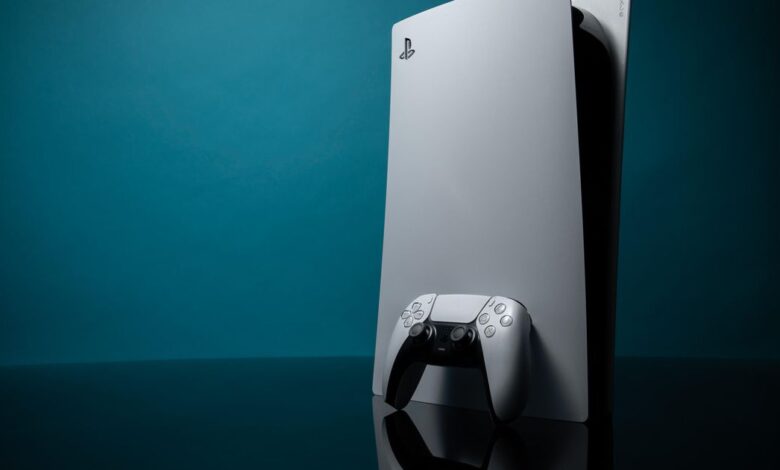How bots help snatch up PlayStation 5 consoles with superhuman speed

At 12:01 p.m. on Wednesday, Sep. 22, 2021, I leaned forward in my computer chair and placed my head on the keyboard, exasperated.
In my inbox, an email bearing bad news: “Order update: Order cancelled – Target”
Three hours earlier, I’d placed an order for the PlayStation 5. I received a “congratulations!” email, informing me the order had been placed. For the next 180 minutes, I’d believed I’d finally scored Sony’s next-gen console.
Nope. “Sorry for the inconvenience!” the freshly-arrived email started. “There is a problem with your order.” The problem was Target had sold me a PS5 that Target didn’t actually have.
I’d been trying, on and off, to nab the console since July. Others had been trying since it was first released back in November 2020. New consoles are always in high demand but, thanks to a global pandemic, a chip shortage and highly coordinated efforts to grab consoles in bulk, the PS5 was practically unobtainable. It remains so today.
The fact I’d come within seconds of finally scoring a PS5 was thanks to Jeremy, an 18-year-old student from Melbourne, Victoria in his final year of high school. From a modest bedroom, white-walled with a window looking out into his backyard, Jeremy had coded a bot to crawl Australian retail websites and automatically post alerts to Twitter and instant messaging platform Discord.
I’d followed his Twitter and jumped into the Discord a few months earlier. But with friends raving about Deathloop, I decided it was time to double down and focus on finally buying a console. Over the course of a few days, I used a YouTube video to train my brain to recognize the characteristic pop that heralded a new notification on Discord. The two-tone alert signalled a “drop,” as PS5 hunters call them, of fresh stock at an online store. It also signalled the opening of an extremely limited window to purchase the console.
On multiple occasions I’d heard the alert, opened the page and clicked through to check out, only to be kicked back to a homepage, thwarted again by invisible forces with seemingly superhuman purchasing speed.
Late in December 2020, Jeremy had experienced the same problem. Back then, he says, it was even more difficult to grab a console than it is today. Stock levels were poor and shipments to Australian stores were infrequent. He’d been passionate about programming for a few years and turned his attention to creating a PS5 bot so he could “compete with the scalpers,” he says.
Strangely enough, he didn’t even use it. After coding his console crawler, he walked into JB HiFi, an Australian-style “Best Buy,” and was able to snag a PS5 on the spot. His bot was no help for him, but he realized he could help other people in the same position by continuing his project. So he did.
The moment my heart broke in two.
Jackson Ryan/CNET
Old habits
There’s a good reason the PS5 is so rare right now: the global chip shortage.
The reasons for the shortage have been discussed ad nauseum. Semiconductor manufacturing stalled as lockdowns kept workers off assembly lines, particularly in Taiwan, the global hub of chip production. Lockdowns also kept people inside, where they needed things like laptops and monitors to work, or took time to order refrigerators and freezers to stock up on food.
Combined with the extremely high interest in the PS5 (and the Xbox Series X, for that matter), the chip shortage created a console scarcity the likes of which has never really been seen before. “It’s a temporary and non-deliberate scarcity,” notes Jason Pallant, a lecturer in marketing at Swinburne University of Technology in Australia.
Pallant notes we place much more value on things when they’re harder to get. “We are, as humans, biologically built to value stuff that there’s not much of,” he says. I certainly felt that pull, when I was doggedly trying to snag a PS5 by training my brain to hear the Discord sound. This is how we end up with scalpers and resellers.
“Anywhere there is scarcity, there is some form of scalpers or resale market,” says Pallant, pointing to sneakers, Lego sets and NFTs to make his point.
PlayStation 5s are currently selling at almost double their retail value in Australia and, as we head towards the holiday period, they’re becoming even harder to find — a trend likely to continue well into next year. Bloomberg reported in November that Sony was cutting its production goal from 16 million to 15 million units built by March 2022.
Drops are only happening once every two weeks or so in Australia and, in places like the US, a similar pattern has emerged. When they do happen, retailers have to be ready to scout for scalpers and prevent them from vacuuming up all the new stock.
Online retailers, like Australia’s Big W, place product limits on a range of products and then validate a range of customer details to ensure buying adheres to those limits. PS5s are limited to one per customer at Big W, for instance. Other retailers don’t drop consoles without raffling them off first or making customers come into the store. “I’ve been quite impressed by some retailers’ responses to the scalpers,” says Jeremy.
It’s a neverending arms race and it’s not limited to PS5s and Xboxes. Sneakers have a long history of limited run drops, increasing their scarcity and making them more appealing for those looking to flip them for profit. Once customers had to line up for hours outside a shoe store to have a chance at grabbing limited edition Jordans. Now they just code bots to do the waiting for them.

Australian retailers, like Big W, drop consoles online without warning. The only way to keep up is by programming bots.
Kelly Barnes/Getty
The Bot
Jeremy’s bot uses the programming language Python and mimics how a human being would purchase a console online.
Running his code, Jeremy tasks the bot with opening up a series of Australian retail websites from Amazon to Big W, JB HiFi, Target and the official Sony website. Once the page is open, the bot scans for keywords like “Add to cart.” If the product is unavailable, that button won’t exist. As soon as the retailer signals new stock has arrived, the page refreshes and “Add to cart” appears.
But the system wasn’t perfect. “We had a lot of issues with false positives,” he says.
More recent iteration of his bots don’t scan for keywords, but listen in for changes behind the scenes. When a retailer has stock, the coding on the webpage changes. Jeremy’s bots now listen in for these changes, then push alerts to his Twitter and Discord immediately.
Jeremy constantly checks the health of his bots with a dedicated monitor and is active online, making sure he alerts his 75,000 followers to any glitches or pings that might set his bots off accidentally.
His bot has been incredibly successful, but he’s far from the only one trying his hand at getting the drop on new stock.
When you can program bots in a matter of hours, it becomes much easier to rig the system. Scalpers use many of the techniques Jeremy has used but take things one step further by tweaking bot code to automatically checkout, buying up consoles in bulk with unmatchable speed. Those bots make for an uneven playing field. “I could make auto-checkout bots, but I just don’t think it’s fair,” Jeremy says.
Auto-checkout bots, retailers claim, have not had much success. In July 2021, one Australian scalping group bragged about getting into the backend of a local retailer, Big W, and purchasing consoles before they even went live on the company’s webpage. The group proudly touted its win on its Instagram page, but Big W confirmed that “all attempts at placing fraudulent orders” were unsuccessful.
Some still slip through the cracks.
Cooked
Buying up stock as soon as it drops and reselling it at a higher price seems, to some, ethically unsound. But it isn’t illegal. While many bemoan the practice in tweet threads and Discord channels, others have taken advantage of the scarcity of everything from sneakers, to games consoles, IKEA clocks and even snack food — forming so-called “cook groups.”
These groups aren’t too dissimilar to Jeremy’s legion of followers listening out for Discord alerts. The cook groups use bots to monitor major retailers and, sometimes, to allow auto-checkout. The major difference is the groups usually require an upfront fee to gain access to their Discord and are filled with people looking to buy and resell, rather than people just trying to score products for themselves.
Jordan Caruccio, who established an Australian cook group in 2019, says there has been some backlash, “especially [with] all the people going for consoles.” He notes that the public is much more accepting of the sneaker resale market, but gaming gets people more worked up.
While retailers like Big W claim they’ve been able to prevent automated bots and people purchasing beyond limits, Caruccio details a number of easy ways to bypass the “one per person system” some retailers use to cancel orders. He also notes specialist small gaming stores have been much harder to crack because they use Captcha to discombobulate bots.
But those retailers are few and far between. Unless you’re using bots or organizing in Discord channels, you’ll find it hard to beat out cook groups, who’ve honed their craft in the sneaker game over the last few years and are privy to the rhythm of retail drops — and they’re making a lot of cash, according to Caruccio.
Some of his members, “as young as 16/17,” have been able to stop working at fast food restaurants to flip consoles for up to $50,000 AUD. “The profit on them is insane so we definitely won’t be stopping anytime soon,” Caruccio says.
There’s no real way to directly prevent the groups from skirting purchasing limits. The responsibility for preventing or restricting cook groups from bulk purchases, at least in Australia, falls squarely on retailers and manufacturers.
A spokesperson for the Australian Competition and Consumer Commission (ACCC) says “consumers that have concerns about in-demand products that are being acquired by these ‘cook groups’ … should raise those concerns with manufacturers and retailers to ensure mechanisms are put in place to stop this practice from occurring.”
Deathloop
I’d been stuck in an endless loop trying to score a console for weeks when, just a day after my Target order was cancelled, Big W had its own drop. Jeremy’s bot picked it up. Discord popped off.
I was sitting at my desk and, with the previous day’s loss fresh in my mind, ready to move faster than usual. In the morning, I had loaded up every retailer that sold the console and logged into each account. I left the pages open in tabs laid out along the top of my third PC monitor. I wanted to minimize the amount of steps between seeing a drop and getting through checkout. I was ready.
When Discord blared its alert, the clock started. I made it through checkout.
It was 3:17 p.m. when the email finally came through: “Thank you for your order.” I knew not to get my hopes up but the next morning, another email. “Shipment confirmation.”
More than anything, the purchase was a relief. I could stop listening for the alert and felt grateful to the bots. When I spoke to Jeremy a few days later, I could tell he was genuinely happy for me. “Congratulations. I’m glad to hear it,” he said.
My PS5 odyssey became a case study: To beat the bots, I had to join them.
But for the regular Joe who wants to grab a PS5 from Target or Big W or Best Buy as little Jane’s Christmas gift? They’re practically powerless. It’s even worse for those who might have a disability, Pallant notes. Bots, like Jeremy’s, are built for those with reflexes quick enough to steer them through a convoluted checkout form. That’s an accessibility problem.
I learnt, in the process of fighting for the console, that scarcity is not scarce. Sometimes it’s deliberately built into sales, other times it’s brought on by a worldwide pandemic. The problem is it’s not necessarily the manufacturers or retailers that end up hurt or disappointed by demand.
Sony might only be able to ship 15 million units, instead of 16 million, but they’re all going to find their way to someone’s living room eventually. That’s money in Sony’s pocket. Retailers send stock out the door almost as soon as it arrives with little effort to stop cook groups (or other resellers) from grabbing multiple consoles. Money in their pockets, too.
There’s no clear solution or quick fix. “The only way it would ever stop is by supply outweighing demand,” Pallant says.
And demand doesn’t appear to be slowing down any time soon.






